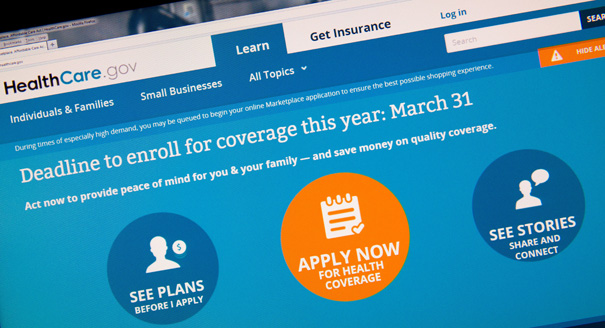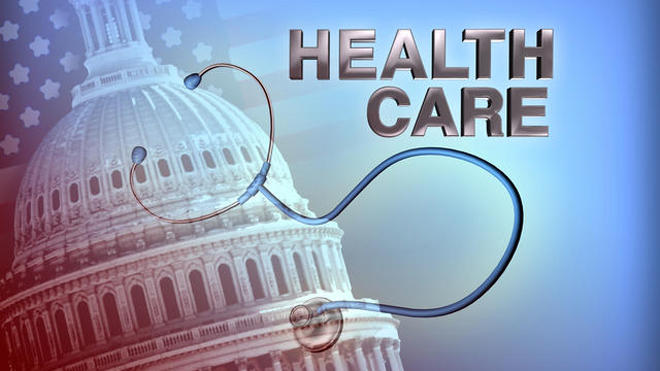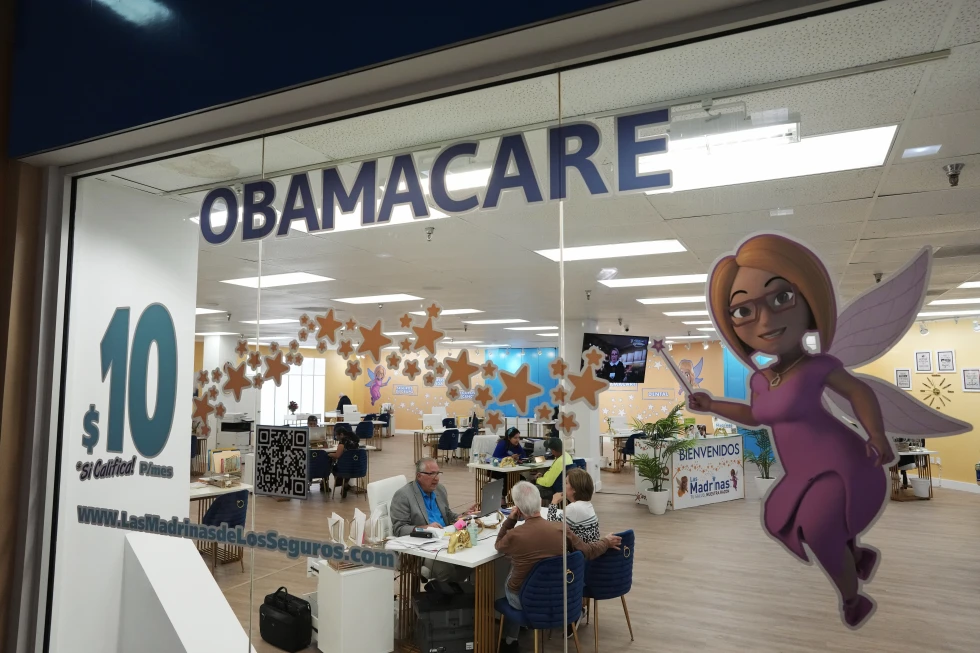The recent announcement of a record-breaking 20 million people signing up for health insurance through the Affordable Care Act marketplaces has sparked significant attention and debate.
This achievement, under the Biden administration, has garnered both praise and criticism, particularly in the context of the ongoing political landscape and the contrasting views of the current and former presidents, Joe Biden and Donald Trump, respectively.
The significance of this milestone cannot be understated, as it not only reflects the increasing reliance on the Affordable Care Act but also serves as a testament to the evolving healthcare needs of the American population.
The Biden administration’s emphasis on expanding access to affordable healthcare has evidently resonated with millions of individuals, leading to a substantial surge in enrollments.
This surge, representing a 25% increase from the previous year, underscores the tangible impact of policy decisions on the lives of ordinary citizens.
It is noteworthy that the timing of this announcement, just days before the closure of the open enrollment period, adds a sense of urgency and relevance to the discussion surrounding healthcare policy.
The impending closure of the enrollment period serves as a reminder of the practical implications of policy changes and the tangible benefits that individuals stand to gain from proactive engagement with healthcare initiatives.
The implications of this record-breaking enrollment figure extend beyond mere statistics, as they carry profound socio-political and economic ramifications.
The Affordable Care Act, often a subject of contentious debate and partisan disagreement, has once again taken center stage in the national discourse.
President Biden, undoubtedly buoyed by this achievement, is likely to leverage these results as a cornerstone of his campaign efforts, underscoring the tangible impact of his administration’s policies on the lives of millions of Americans.
Conversely, the stark contrast in views between the current administration and the opposition, particularly in the form of former President Donald Trump’s vehement opposition to the Affordable Care Act, sets the stage for a protracted and contentious political battle.
The fundamental divergence in policy priorities and approaches to healthcare underscores the deep-seated ideological differences that continue to shape the national narrative.
The surge in sign-ups, attributed in part to the implementation of tax breaks and low-cost plans, serves as a testament to the potential of targeted policy interventions to effect tangible change.
The strategic utilization of tax breaks to enhance affordability and accessibility has evidently yielded tangible results, underscoring the potential of policy levers to drive positive outcomes in the realm of public health.
The record-breaking enrollment figures, while undoubtedly a cause for celebration for proponents of the Affordable Care Act, also serve as a clarion call for sustained vigilance and proactive engagement with healthcare policy.
The evolving healthcare landscape demands a nuanced and comprehensive approach, one that transcends partisan divisions and prioritizes the fundamental right to quality and affordable healthcare for all.
In conclusion, the milestone of 20 million enrollments in the Affordable Care Act marketplaces represents a watershed moment in the ongoing saga of healthcare policy in the United States.
The implications of this achievement reverberate far beyond mere statistics, encapsulating the intersection of policy, politics, and the lived experiences of millions of individuals.
As the nation grapples with the imperatives of healthcare reform, the record-breaking enrollments serve as a potent reminder of the transformative potential of proactive policy interventions and the enduring relevance of healthcare as a fundamental human right.
In the crucible of competing ideologies and divergent policy priorities, the record-breaking enrollments stand as a beacon of hope and a testament to the power of collective action in shaping the contours of a healthier and more equitable society.
As the nation navigates the complexities of healthcare policy, the significance of this milestone serves as a rallying cry for sustained commitment to the ideals of accessibility, affordability, and equity in healthcare.
The recent declaration by President Biden, emphasizing the need to solidify the progress made in lowering healthcare premiums, underscores the ongoing challenges in the American healthcare landscape.
The statement reflects a broader narrative of political contention and societal impact, encapsulating the intricate interplay between policy initiatives, public engagement, and the overarching goal of accessible and affordable healthcare for all citizens.
The nation’s top health official’s acknowledgment of heightened interest in healthcare coverage, alongside the administration’s concerted efforts to facilitate enrollment, serves as a testament to the evolving dynamics of healthcare access and the persistent pursuit of equitable healthcare provision.
The administration’s proactive engagement with nonprofits, particularly in marginalized communities such as South Florida, highlights a deliberate attempt to address existing disparities in healthcare access.
This strategic focus on inclusivity is a pivotal step towards rectifying historical inequities that have disproportionately affected Black and Latino populations.
The infusion of additional resources into the navigator program, which was previously undermined during the prior administration, reflects a commitment to bolstering the infrastructure necessary for facilitating healthcare enrollment.
Secretary Xavier Becerra’s assertion regarding the previous administration’s lack of effort in informing individuals about available healthcare options further underscores the significance of proactive outreach and education in promoting healthcare access.
However, the surge in enrollment, while a cause for celebration, has not been devoid of challenges and trade-offs.

The revelation that a portion of new enrollees turned to the marketplace due to Medicaid disenrollment sheds light on the complex repercussions of policy shifts on vulnerable populations.
The resultant increase in premiums and copays for these individuals underscores the intricate trade-offs inherent in healthcare policy implementation.
While expanding access to the marketplace is a critical step, it is imperative to ensure that such measures do not inadvertently exacerbate the financial burden on those transitioning from Medicaid.
The contrasting approaches of successive administrations towards healthcare provision underscore the deeply entrenched political dimensions of healthcare policy.
The divergent ideologies and policy priorities of different administrations have tangible ramifications for the accessibility and affordability of healthcare for millions of Americans.
The stark contrast between the previous administration’s approach, characterized by a lack of emphasis on informing individuals about available healthcare options, and the current administration’s proactive outreach efforts, underscores the pivotal role of political leadership in shaping the healthcare landscape.
The ongoing discourse surrounding healthcare premiums and accessibility underscores the imperative of devising sustainable solutions that transcend political cycles.
The cyclical nature of healthcare policy initiatives, subject to the whims of changing administrations, underscores the need for enduring, bipartisan efforts to fortify the progress achieved in healthcare accessibility.
The imperative of making lower healthcare premiums a permanent fixture necessitates a broader commitment to fostering long-term, sustainable solutions that transcend partisan divides.
The multifaceted nature of healthcare access and affordability demands a comprehensive, multi-pronged approach that encompasses policy reform, public engagement, and systemic restructuring.
The evolving dynamics of healthcare provision necessitate a holistic approach that addresses not only the immediate challenges of premium costs and enrollment, but also the broader systemic inequities that underpin healthcare accessibility.
The imperative of fostering a healthcare system that is resilient, inclusive, and sustainable demands a concerted effort to navigate the intricate interplay of policy, public engagement, and systemic reform.
In conclusion, the current discourse surrounding healthcare premiums and enrollment encapsulates the intricate interplay of political, social, and systemic factors that underpin healthcare accessibility in the United States.
The imperative of fortifying the progress made in lowering healthcare premiums necessitates a sustained, bipartisan commitment to enduring solutions that transcend political cycles.
The evolving dynamics of healthcare provision underscore the imperative of fostering a resilient, inclusive, and sustainable healthcare system that prioritizes the needs of all citizens.
As the nation navigates the complexities of healthcare policy, the imperative of sustainable progress remains a foundational principle that must guide future endeavors in shaping the American healthcare landscape.
The recent developments surrounding Medicaid and the Affordable Care Act in the United States have sparked significant concern and debate.
With approximately 14.5 million Americans being removed from Medicaid following the lifting of a 3-year ban on purging ineligible individuals from the program, the repercussions of these actions are far-reaching and impactful.
This controversial decision has not only led to widespread confusion and frustration but has also resulted in thousands of children and pregnant women erroneously losing their health insurance coverage in certain states.
Moreover, the political landscape surrounding healthcare in the United States has been further complicated by the rhetoric and actions of former President Donald Trump.
His vocal opposition to the Affordable Care Act, often referred to as “Obamacare,” has added another layer of complexity to an already contentious issue.
Trump’s promises to dismantle the healthcare policies implemented during the Obama administration have only served to intensify the ongoing debate and uncertainty surrounding the future of healthcare in the country.
In light of these developments, it is essential to consider the profound implications for the individuals and families affected by the changes to the Medicaid program.
The sudden removal of millions of people from Medicaid has undoubtedly created a state of upheaval and vulnerability for those who rely on this government-sponsored health insurance for essential medical coverage.
The potential consequences of this mass disenrollment are deeply concerning, particularly for vulnerable populations who may face significant challenges in accessing alternative healthcare options.
Furthermore, the timing of these changes, particularly in relation to the open enrollment period for health insurance plans under the Affordable Care Act, adds another layer of complexity to the situation.
While open enrollment for ACA plans is set to conclude on January 16th, the individuals who have been removed from Medicaid may find themselves navigating a complex and time-sensitive process to secure alternative health insurance coverage.
The need for clear and accessible information regarding enrollment options and eligibility criteria is paramount to ensure that those affected by the Medicaid disenrollment are not left without essential healthcare protection.
Amidst these developments, it is crucial to acknowledge the broader implications for the healthcare system as a whole.
The potential strain on healthcare providers and facilities, as well as the implications for public health outcomes, cannot be overlooked.
The disruption caused by the mass disenrollment from Medicaid has the potential to reverberate throughout the healthcare landscape, impacting individuals, communities, and the broader healthcare infrastructure.

In conclusion, the recent events surrounding Medicaid disenrollment and the ongoing debate over the Affordable Care Act underscore the critical importance of accessible, affordable, and reliable healthcare for all Americans.
The repercussions of these developments are multifaceted, encompassing individual well-being, public health, and the broader healthcare system.
As the discussion and decision-making process regarding healthcare policy continue to unfold, it is imperative to prioritize the needs and welfare of those directly impacted by these changes, and to work towards sustainable, equitable solutions that uphold the fundamental right to healthcare for all.

